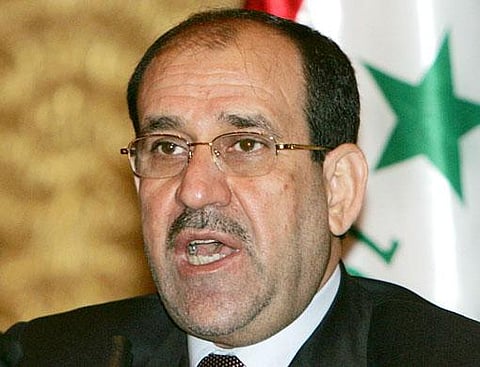Tackling graft should be top priority for Iraq
War-torn country needs to rebuildits relationship with Arab neighbours

Iraqis were surely relieved as the new government has finally taken shape nine months after the elections. Led by incumbent Nouri Al Maliki, the unusually large cabinet — 42 ministers, will have an equally massive task ahead as the US prepares to withdraw its troops by the August 2011 deadline.
Obviously, the priority will be to sustain the improvement in the security situation and train the army and security forces to deal with the sporadic surge in bombings and terror attacks. The past nine months, which saw rival parties fighting for shares in the cabinet, allowed anti-government groups to re-arm and carry out spectacular attacks on civilians and police personnel. The security task is a tough one and that is perhaps why Prime Minister Al Maliki has kept the post to himself in order to shield it from the current power grabbing. His aides say "the right people" will be appointed to the three security posts — interior, defence and national security.
But there is an equally crucial task before the new cabinet, and that is to address rampant corruption. According to most international, and even local reports, corruption runs in almost all arteries of the federal and local governments.
This led to the delay in restoring basic services in most parts of the country and discouraged Iraqi and foreign investors from contributing to the rebuilding of war-ravaged Iraq. Iraq is not a poor country, but the corruption, acknowledged by even Al Maliki himself, has wiped out the country's wealth. The new government must fight this plague, which is as dangerous as the terrorism threat. Thirdly, it is high time Iraq regained its rightful place among Arab nations. Many Arab states have been reluctant to restore full relations with Baghdad due to legitimate concerns over the reliance of its political establishment on the US and Iran. Today, as Iraq gets an inclusive government, where all ethnic and religious communities are represented, the government must immediately start rehabilitating its troubled relationship with its Arab neighbours.
Sign up for the Daily Briefing
Get the latest news and updates straight to your inbox



